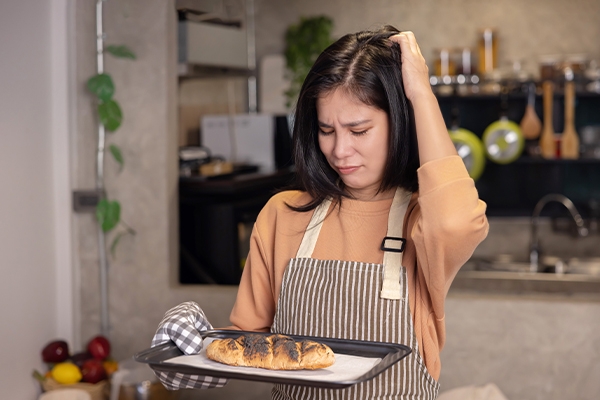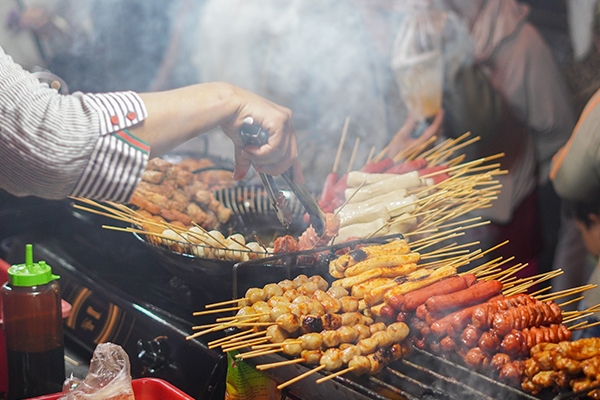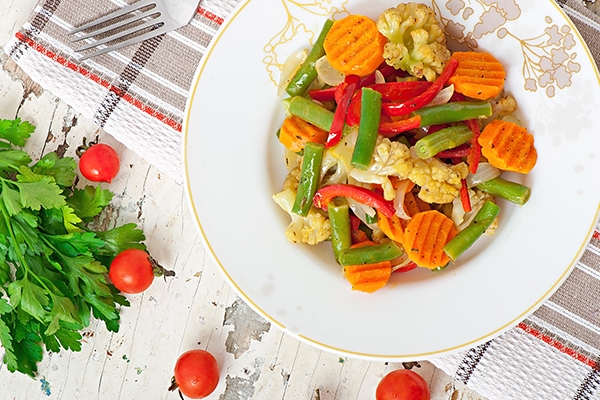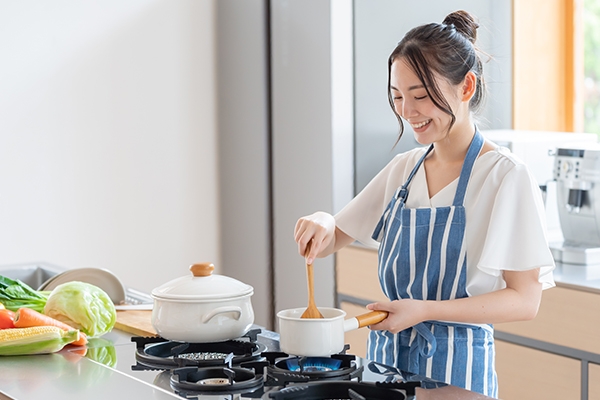Is It True That Burnt Food Can Cause Cancer?

Who likes burnt food? A piece of toast with black edges, torched marshmallows, or satay may sound appetizing to some people. However, is burnt food safe to eat?
Some types of food can increase the risk of chronic diseases, including cancer. Burnt food is even classified as a carcinogen—a substance that can cause cancer in tissue even though there is no strong evidence of this.
So what should burnt food lovers believe? Should you stop roasting marshmallows over a fire?
High-heat cooking methods, such as frying, grilling, or smoking some foods, particularly carbohydrates like bread or potatoes, release a chemical called acrylamide.
Acrylamide is formed in a reaction between the naturally occurring amino acid asparagine and certain carbohydrates. Dairy, meat, or fish products are less likely to contain acrylamide. It can be found in chips, cereals, cookies, cakes, and coffee.
So what about the meat? Satay or steak lovers may be interested to note that cooking meat at high temperatures can produce carcinogenic compounds, such as heterocyclic amines (HCAs) and polycyclic aromatic hydrocarbons (PAHs).
HCAs are formed when meat is cooked at high temperatures from reactions between molecules such as amino acids and sugars, while PAHs are formed from fat and meat juices that drip onto the fire during cooking.
HCAs are not found in significant amounts in foods other than meat cooked at high temperatures, but PAHs can be found in other smoked foods, as well as in cigarette smoke and car exhaust fumes. Acrylamide and other carcinogenic chemicals are not found naturally in food but are formed during the cooking process.
For example, starchy foods that turn golden brown have less acrylamide than those that are cooked until dark brown or burnt. In contrast, cooking methods like boiling and steaming do not produce acrylamide.
Acrylamide and cancer: facts and myths

Some studies suggest that overcooking food can produce potentially harmful carcinogens. However, there is limited scientific evidence for a direct link between acrylamide and cancer in humans.
Studies looking at the link researching acrylamide and cancer in various parts of the body, such as the colon, kidney, bladder, and prostate, have not found a consistent correlation.
Should I cut back?
Acrylamide is thought to be avoided because it is found in so many products. However, you can limit your consumption. If most of the acrylamide we consume comes from processed foods, there are some simple steps we can take, such as:
- reduce processed foods meals like chips and French fries;
- cook until golden brown instead of dark brown;
- avoid overcooking bread.
There are many myths, questions, and hot topics surrounding cancer risk. However, from decades of research on cancer prevention, we know proven ways to lower your risk.
For example, avoid smoking, maintain a healthy weight, limit alcohol consumption, and eat a healthy, balanced diet.
Diet and cancer risk

Eating burnt toast may not necessarily increase your risk of developing cancer. Your daily diet (what you eat every day) is very crucial. A healthy, balanced diet can help lower your risk of cancer.
Here are some tips:
- Consume fruits and vegetables and whole grains like whole wheat bread and brown rice.
- Choose healthy protein sources including chicken, fish, and beans.
- Reduce your consumption of processed and red meat, alcohol, and foods heavy in sugar, fat, and salt.
Pay attention to cooking methods and equipment

In addition to paying attention to the food being cooked, cooking equipment also has an impact. For example, non-stick cookware or aluminum foil can release harmful chemicals into the food if used at high temperatures.
Therefore:
- Use low to medium heat when cooking.
- Monitor food so that it is not overcooked.
- To prevent food from releasing toxins, avoid overcooking and utilizing foods that are at risk of this.
- Using a microwave to cook meat before high-temperatures cooking can significantly reduce HCA formation. This method reduce the amount of time the meat is exposed to high heat, allowing it to be cooked with less HCAs.
Burnt foods, such as toast or barbecued meat, contain acrylamide and other carcinogenic chemicals. However, this risk can be reduced by proper cooking and reducing the consumption. More importantly, focus on a healthy, balanced diet to lower the risk of chronic diseases like cancer.



